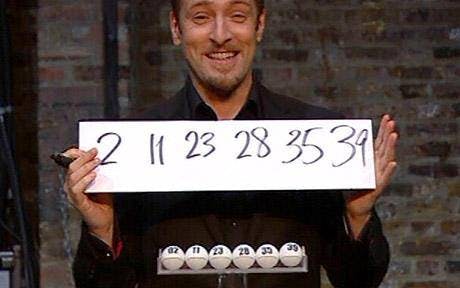Why Do So Many People Believe They Can Win the Lottery?
A deep analysis of the psychology behind lottery games and expectations of sudden wealth.
The Lottery House
tags:
lottery
psychology

Introduction:
Despite overwhelming statistical evidence indicating the minuscule chances of winning the lottery, millions of people worldwide continue to gamble on games in hopes of a stroke of luck that will change their lives forever. The statistics are clear: the odds of matching the drawn numbers are so small that they defy logic and reason. However, this reality does not deter players from persisting in their efforts, fueled by faith in luck and the promise of a life of instant wealth. Even knowing that the odds are firmly against them, many choose to ignore mathematical facts and continue to invest their money in lottery tickets, hoping for a financial miracle. This apparent contradiction between rationality and irrational hope raises fascinating questions about human psychology and the reasons behind lottery persistence.
In this feature, we will explore in-depth the reasons why so many people maintain the belief in the possibility of becoming overnight millionaires through the lottery. By delving deeper into this complex dynamic, we can better understand the impulses and motivations behind the universal desire to pursue the dream of instant fortune.
1. The Persistence of Lottery Faith: Dreams of Wealth Despite Astronomical Odds

Despite statistical evidence that the chances of winning the lottery are infinitely small, with probabilities that defy logic and reason, faith in luck continues to drive many to invest in dreams of instant wealth. Even though the chances of matching the drawn numbers are minimal, players persist in their bets, fueled by the hope of drastically and quickly changing their lives. Many believe, somehow, that one day they will be the lucky winners of the fabulous fortunes drawn.
To illustrate, in a minimum Quina bet, the chance of matching all five numbers is approximately 1 in 24,040,016. In Mega-Sena, one of Brazil's most popular lotteries, the probability is even lower, with only 1 in 50,063,860 for single bets of six numbers. Despite these nearly insignificant odds, people continue to invest their money in lottery tickets, often ignoring the mathematics behind the probabilities.
2. Lottery Bias: Optimism in the Face of Risk

Various behavioral theories have been proposed to explain why so many people continue to gamble on the lottery despite minimal chances of winning. One suggests that humans have a natural tendency to be more optimistic than practical when it comes to lottery games. The prospect of high gains is often enough to overcome rational assessment of the risk involved. According to Hans Breiter, professor of psychiatry and behavioral science at Northwestern University in the United States: "We are more inclined to take risks if there are high gains involved."
Furthermore, the human mind tends to place more importance on unlikely events, such as winning the lottery, compared to more likely events, such as the need for health insurance for aging-related health issues. The inherent uncertainty of unknown probabilities seems to exert a particular fascination on people, leading them to ignore real chances in favor of unrealistic hopes.
3. Illusion of Control: Belief in "Deciphering the Outcome" in the Lottery

An intriguing aspect of human behavior regarding the lottery is the tendency of many individuals to believe they can "decipher the outcome" and increase their chances of winning. Even when confronted with the completely random nature of the draw, some people believe they have some control over the outcome and can influence it with the right strategy. However, psychologists argue that this belief is an illusion and that the lottery is, in fact, a game of pure chance.
4. Mental Challenge: Difficulty in Grasping Lottery Odds

Another factor contributing to the persistence of belief in the lottery is the difficulty of conceiving the extremely small probabilities involved. For most people, it is virtually impossible to mentally visualize the chances of winning a lottery prize, especially when those chances are one in millions. The human brain did not evolve to understand such small probabilities, which may contribute to the distorted perception of the actual chances of winning.
5. Winner Influence: Availability Bias in Perceiving Lottery Odds

Finally, people are strongly influenced by examples of success, especially when it comes to stories of people who became wealthy through the lottery. The "availability bias" causes us to remember the few lottery winners and overestimate our own chances based on these isolated examples, ignoring the millions of losers.
Conclusion:
Despite discouraging statistics and seemingly impossible odds of winning the lottery, faith in luck continues to drive millions of people worldwide to invest in lottery tickets. The hope of quickly and significantly changing one's life seems to override logic and reason, leading many to ignore the mathematical facts behind the odds of victory. Even though they know the chances of matching the drawn numbers are minimal, players persist in their dreams of instant wealth, fueled by the belief that they could be the next lucky winners. This persistence in the lottery reflects not only the pursuit of a better life but also human fascination with uncertainty and the possibility of a transformative stroke of luck. Therefore, as long as there is hope and the promise of a better future, the lottery will continue to attract those seeking a path to fortune and happiness, even if the odds are against them.
Ultimately, the persistence of belief in the lottery is a complex phenomenon involving a range of psychological and behavioral factors. Despite overwhelming odds and the purely random nature of lottery games, many people continue to invest their hope and financial resources in the pursuit of a better life. Understanding the reasons behind this belief can provide valuable insights into human psychology and the ways people make decisions in situations of risk and uncertainty.